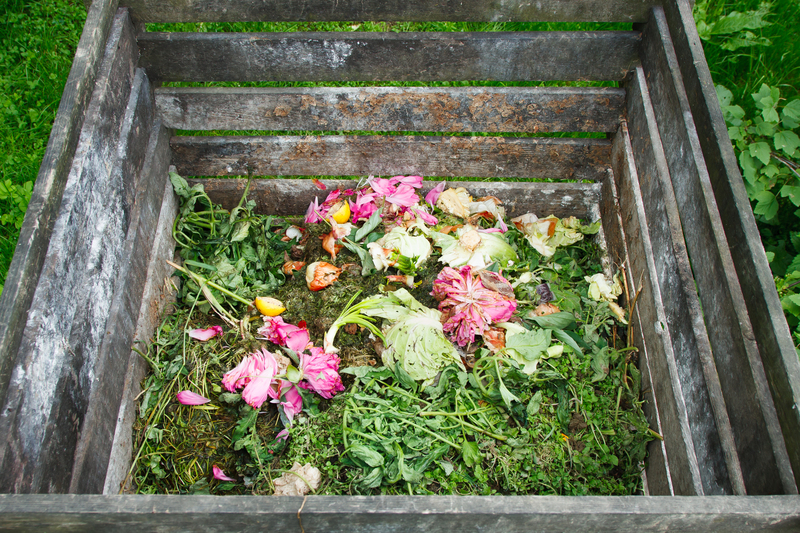Cutting Costs When Dealing With Bulky Waste Items
Bulky waste disposal is a challenge faced by homeowners, landlords, property managers, and even small businesses. Bulky waste refers to items such as old furniture, appliances, mattresses, and large heaps of garden refuse that regular bin collections can't handle. Reducing the costs associated with disposing of these large, awkward items can lead to not only financial savings but also environmental benefits and improved property aesthetics.
In this comprehensive guide, we'll explore expert tips and actionable strategies for cutting costs when dealing with bulky waste items. Whether you're clearing out your attic, upgrading office equipment, or managing a renovation site, these cost-effective, eco-conscious solutions will help streamline the process.
Understanding Bulky Waste Items and Their Disposal Challenges
What are Bulky Waste Items?
- Furniture: sofas, chairs, desks, wardrobes, beds, and tables
- Large appliances: washing machines, stoves, fridges, freezers
- Mattresses and bed frames
- Carpets and floor coverings
- Garden refuse: tree limbs, bushes, old garden furniture
- Electronics: TVs, monitors, old computers (also classed as e-waste)
The sheer size and weight of these objects make logistics, cost, and proper disposal methods complex. Most municipalities don't accept them with regular trash pickup, and improper dumping is not only illegal but also environmentally destructive.
Why Is Bulky Waste Expensive to Dispose Of?
- Transportation fees: Hauling requires specialized vehicles and equipment
- Landfill charges: Bulky items take up significant landfill space, increasing tipping fees
- Labour costs: Manual handling may require a crew, especially for heavy or awkward objects
- Special environmental disposal rules: Items like fridges or electronics require dismantling and hazardous material removal

Smart Strategies for Cutting Costs on Bulky Waste Removal
1. Reduce, Reuse, and Repurpose
Before you consider tossing out bulky waste items, ask yourself: Can any of these items be donated, repurposed, upcycled or re-sold? This approach keeps waste out of landfills while potentially saving you disposal fees or even making you some money.
- Donation: Charitable organizations, shelters, and thrift shops often accept gently used furniture, appliances, and even mattresses. Some offer free pick-up services.
- Selling: Use online platforms like Facebook Marketplace, Craigslist, or Gumtree to sell items locally. Even broken appliances are sometimes wanted for parts or scrap value.
- Repurposing: Old wood can be turned into shelves, headboards, or garden planters. Sofa cushions can be reused for pet bedding or insulation.
2. Bulk Collection Days and Local Authority Services
Most cities and towns schedule special bulk item collection days where residents can put out large items for free or at a reduced fee. Check with your local council or municipal waste authority for available dates and allowed items.
- Enquire if permit or advance booking is required
- Group items logically (metal, wood, soft furnishings) for easier pick-up
- Coordinate with neighbours for shared collections and lower costs per property
Tip: Some local governments have "bring sites" or special centers where you can drop off bulky items at little to no cost.
3. Community Sharing and Cooperative Disposal
Pooling resources with neighbours or local community groups can drastically reduce the cost per household when removing bulky waste. Here's how:
- Hire a skip (dumpster) and split the cost among several homes
- Arrange a group pickup with a registered waste removal company and negotiate better rates
- Share transport, such as van hire, for bringing items to recycling centers
Cooperative initiatives not only save money but also build community ties and encourage recycling as a habit.
4. Hire a Professional Bulky Waste Removal Service--But Shop Around
While it can be tempting to hire the first waste removal company you find, prices and services can vary dramatically. Cost-effective bulky waste disposal often comes down to comparing quotes and checking what each price includes.
- Ask if charges are by item, weight, or vehicle load
- Verify the company holds a legitimate waste carrier license
- Check for environmental policies: Do they recycle or donate? What landfill diversion rates do they have?
- See if discounts are offered for off-peak collections or for certain items (e.g., metal, which may have a scrap value)
- Ensure there are no hidden fees for loading or distance
Important: Beware of unlicensed contractors even if they offer lower prices; you could be fined if your waste ends up fly-tipped.
5. Utilize Recycling Centers and Special Waste Facilities
Many recycling centers accept bulky waste such as old furniture, white goods, and electronics, often for free from local residents. Some even accept mattresses and carpets if they are clean and dry.
- Locate your nearest civic amenity site and check hours/accepted materials
- Transport items yourself to avoid collection fees
- Sort items to maximize recycling (wood, metal, electronics, textiles)
*Tip: Some centers operate "reuse shops" for items in good condition, helping further reduce disposal costs and landfill waste.*
Advanced Ways to Cut Bulky Waste Costs for Businesses & Landlords
Conduct a Bulk Waste Audit
For landlords, property managers, and businesses, a scheduled bulky waste audit can identify the sources and types of large unwanted items generated throughout the year. This moves your approach from reactive to proactive, saving costs and operational time.
- Track waste types per tenant, department, or project
- Monitor disposal costs and compare with recycling options
- Set baseline goals for reduction, reuse, and recycling
Negotiate Commercial Waste Removal Contracts
Commercial properties typically pay higher rates for frequent large item disposal. Mitigate this by negotiating annual or scheduled bulk pickups with accredited waste contractors.
- Bundle bulky item pickup with regular waste services for discounts
- Request flexible pickup schedules to avoid 'emergency' charges
- Ask for detailed reporting on recycling and landfill diversion rates
Implement Tenant or Staff Education Programs
Educate tenants, employees, and cleaning staff about cost-effective bulky waste management:
- Guidance on what can be donated, resold, or upcycled
- Clear signage on-site for segregating plastics, metals, wood, and e-waste
- Quarterly "free-cycle" days where large, usable items can be swapped rather than discarded
Environmental and Legal Considerations When Disposing of Bulky Waste
The Cost of Illegal Dumping
Improper or illegal disposal of bulky waste items, such as fly-tipping furniture or appliances, can result in heavy fines, legal liability, and environmental damage. Not only does this create community eyesores, it burdens taxpayers and clogs up public resources.
- Always use licensed waste carriers
- Retain receipts and transfer notes for your records
Recycling and Landfill Diversion: A Financial Incentive
Landfill costs are rising due to environmental taxes and increased pressure to reduce waste. Recycling or donating bulky items can dramatically reduce overall disposal costs--many materials in large waste items have valuable secondary uses:
- Metals and appliance carcasses can be scrapped for money
- Clean wood and textiles may be used in construction or insulation
- Mattresses are increasingly recycled for their foam and springs
DIY Bulky Waste Removal: Is It Worth It?
Many homeowners consider removing their own items using a rented van or trailer. DIY can appear to be the ultimate in low-cost bulky waste disposal, but it's crucial to weigh all the factors:
- Cost of van hire and fuel
- Potential for injury or property damage from heavy lifting
- Time and effort vs. cost savings
- Knowledge of local recycling and disposal rules
- Access to recycling centers or transfer stations
For small quantities or when you have help, removing bulky waste yourself can indeed save money. Always check that you are allowed to dispose of such waste as a private individual at the chosen site.
Seasonal and Situational Bulky Waste Cost-Saving Tips
After Holidays and Large Events
- Take advantage of post-holiday council amnesty days where extra refuse is accepted
- Organize community-wide clean-ups, sharing removal costs
- Alert local charities before disposal as demand for furniture spikes during certain times of the year
During Renovations or Moves
- Time your bulky waste disposal for when skip hire is least expensive (mid-week/off-season)
- Coordinate with contractors to include removal in project quotes
- Use social media to give away building materials or fixtures before discarding them

Quick Reference: Cost-Cutting Checklist for Bulky Waste
- Donate or sell reusable items before disposal
- Group with neighbors and share removal or skip hire costs
- Use local authority bulk pickup days or drop-off centers
- Get multiple quotes and licenses checked for professional removals
- Recycle or segregate materials for lower fees
- Consider DIY disposal if safe, legal, and cost-effective
- Educate others to minimize recurring bulky waste generation
Conclusion: Saving Money and the Planet
Dealing with bulky waste items doesn't have to be a wallet-draining, time-consuming chore. By leveraging the strategies above--from donation and reuse to group disposal and comparing service quotes--you can significantly reduce the financial and environmental costs associated with large waste removal. Make sure to factor in safety, legal obligations, and the potential for upcycling to maximize benefits. In the end, smart bulky waste management is about more than money--it's about creating a cleaner, greener, and more resourceful community.
Remember: Cutting costs when dealing with bulky waste items is possible for everyone, with just a bit of planning, community cooperation, and knowledge of local resources.
```